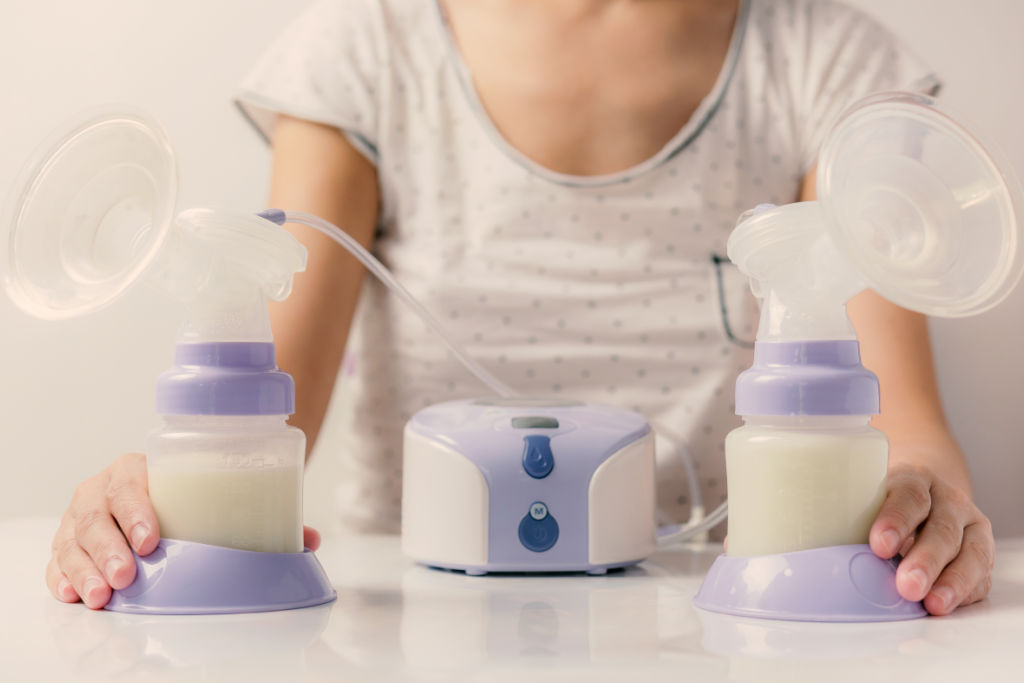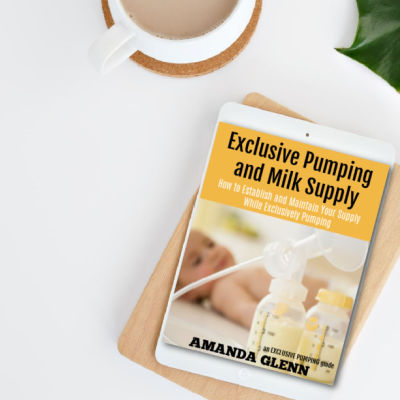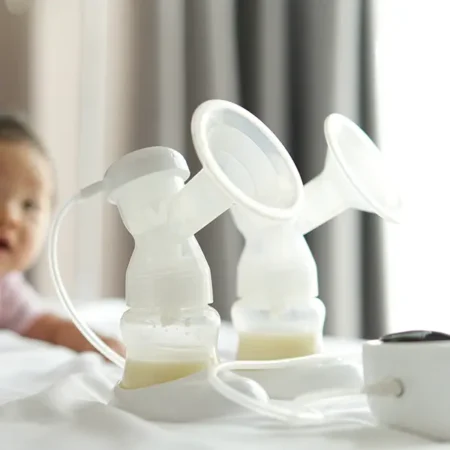It can be difficult to find answers to questions about exclusively pumping from an expert. Exclusive pumping isn’t a subject that’s been studied much, and many of us are used to having medical professionals look at us like we have two heads when we try to explain what we’re doing. I reached out to Jenn Suffin, a lactation consultant based in San Francisco, and she was kind enough to answer some great exclusive pumping questions submitted by the Facebook group.

This post may contain affiliate links, which means if you click a link and purchase something, I may make a small commission at no additional cost to you. I only recommend products I love! More information here.
Here are the questions and Jenn’s answers:
Does 6 month old breast milk still meet my baby’s needs?
Are there any negatives or things to consider when feeding frozen breast milk? Breast milk composition changes as baby grows, so is frozen breast milk still nutritious for a 9 month old if you pumped it 6 months ago (for example)?
The short answer is no, there aren’t any negatives to feeding frozen milk. Freezing may reduce a few ideal elements of your milk, but it is still optimized to nourish your baby.
While we do know that the milk that you make on day 3 of life is different than the milk that you make on day 30 which is different than the milk you make at 6 months, the breastmilk is still the ideal food for your growing baby. Yes, there will be antibodies and other contents that are produced specifically to your infant’s needs at that moment of time. Yet, they are still beneficial and not harmful in any way if you give it to your baby at a later date.
When you do have a stash of milk from months ago, the best way to give it to the baby is to also provide some more recently pumped milk so that the baby receives the benefits of any immediate antibody, caloric, and nutrient content that you are currently producing specific to your baby at the moment. I usually suggest moms try and do a 25-30% older milk to 70-75% newer milk in a 24 hour period and try and rotate in the oldest stash first.
Is it okay to do very hard breast compressions?
Can frequent / very hard hand compressions damage breast tissue?
Yes, they can, but we are talking very hard compressions. If you are seeing bruises on your breasts, that isn’t a good sign.
Breast massage doesn’t have to be super-intense. Starting with a very light massage before pumping, tapping all around the breasts, light pressure stroking and even some gentle shaking of the breasts can go a long way towards helping milk flow. Once the pump is on the breasts, continuing with gentle compressions all around the pump parts that are in contact with the breasts should be sufficient.
Also use your pump dynamically. When milk stops flowing, adjust the settings a bit to mimic a let-down suck (faster and more shallow) to see if you can elicit additional letdowns. Studies also show that if you turn the pump off and remove it mid-session, and then do some hand expression for a few minutes before restarting your pumping session, you may see greater pumped volumes overall.
Does breast milk change over time to meet your baby’s needs if you’re exclusively pumping?
One question I have always had is about how breast milk changes over time and if/how that happens for exclusive pumpers? Do you need a nursing relationship, or is it mostly hormonal and happens anyway?
Breastmilk does change over time, as mentioned above. These changes are based on the growing infant’s needs and are in a large part due to your interactions with the baby. While some may note that a big part of those changes occur due to the saliva exchange in mom’s ductal system when a baby is directly breastfeeding, much of that feedback that her system requires in order to synthesize the ideal milk is achieved through close physical contact with the baby.
This means that snuggling with your baby, going skin to skin with your baby, kissing your baby, and smelling your baby are all ways that your body takes in information regarding the infant’s current nutritional needs.
Need help with exclusive pumping? Use EPUMP30 for 30% off
How long should I try to increase milk supply before giving up?
How long do you think one should try to build up their supply with (fill in the blank – power pumping, galactagogues, pumping a set number of times each day) before one should accept that their supply is what it is?
The answer to this question largely depends on how old the baby is and potentially, how much milk supply stimulation mom has received prior to focusing on increasing supply.
Generally, the younger the infant, the greater chance there is of increasing supply. If there has been a lack of milk supply stimulation for a period of time, it may be harder to increase supply. While the answers here vary greatly, we know that the best way to increase supply is to remove milk frequently.
Giving it 3-4 weeks of time with this increased milk removal should give you a good idea if your supply is going up or if you can start to think about how to supplement your milk supply with formula to meet your baby’s needs AND enjoy your time with your baby without being so beholden to the pump. It should be noted that these numbers aren’t evidence-based, but rather what I have seen from many moms in my practice.
Should I wait to do a “full” pumping session?
If you don’t have time to do a complete pumping session, is it better to pump some, or wait until you can pump until you are empty?
It is better to pump some rather than skipping a pumping session. Even if you can only do 5 minutes in a session, the key is to remove milk more frequently in order to maintain supply. So on those days when you find that you can’t get in your 15-20 minute pumping session at any point, try and get in a shorter session if possible and potentially try adding in another shorter session sooner to help compensate.
————–
I wanted to extend a huge thank you to Jenn for taking the time to answer all of these questions – I found the answers really interesting and helpful! (And seriously, I had been wondering about breast milk changes and exclusive pumping for six years, and now I know!)
If you live in the Bay Area and need a lactation consultant, you can contact her here. You can also find her on instagram (@careinthecurve) or Facebook.




















